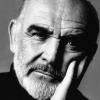Fans of 007 left cinemas in 2006 with arguably the most triumphant “Bond, James Bond” of the series ringing in their ears along with the iconic theme music. They had just witnessed how James Bond came to be, as Daniel Craig’s Bond successfully reinvented the character for the 21st Century in the film ‘Casino Royale’.
However, the success of Casino Royale set audience’s expectations sky-high for the following film; Quantum of Solace. They weren’t sure what they were getting, but judging by the development of the Bond character, many assumed that they would be getting a more formula based James Bond film.
Cut to 2008 and the Columbia pictures logo appears with a rather ominous soundtrack playing over it. Fans are probably starting to wonder when the Bond theme will start playing so they can see the new gun barrel. But the music keeps a steady pace and the film opens, building up the tension into a hectic car chase between Bond and Henchman of the mysterious Organisation that he faced in the previous film.
It was clear that this certainly wasn’t going to be another formulaic Bond adventure, and this was a fact that many were taken aback by. But before I begin, I would like to point out that the majority of people who have seen Quantum of Solace actually like it, it’s even ‘Certified Fresh’ on Rottentomatoes.com. Regardless of whether that really means anything, it’s certainly a way of judging the audience’s reaction to the film, so it shouldn’t be overlooked in my opinion.
I would also like to say that James Bond is like comedy; it’s entirely subjective. What I mean by that is that since Bond has had so many different interpretations throughout his incredibly long life span, everyone has their own ideas as to what Bond should be. As such, I’m not going to say that those who dislike what is in my opinion one of the greatest Bond films are wrong, but rather, give my own interpretations on the film.
I will do this in by going through some common criticisms of the film, and giving my own view on these in relation to the film. I will format these criticisms in chapters which of which will be posted individually.
PART 1: Quantum of misunderstanding
I feel that the film in general is misunderstood. This is perhaps because of the exceptionally fast pacing of the film and the fact that it expects the audience to be able to keep up with it, which was indeed asking a lot since most people expected this to be a straight-forward adventure. This had lead to the following misconceptions.
1)James Bond is still ‘earning his stripes’.
2)That Bond is on a revenge mission.
Even I thought this for a while, and it’s an easy mistake to make. In Casino Royale, Bond was earning all of his ‘Bondian’ attributes as the film progressed, such as the Gun barrel, theme, tuxedo and whatnot.
Then Quantum of Solace begins just moments after Casino Royale, there is no gun barrel or full Bond theme until the end and the betrayal of Vesper is a sub-plot for the entire film. Not just that, but there is a lack of trust between Bond and M, as she isn’t sure whether he is (as she puts it) ‘Blinded by inconsolable rage’ as he ends up killing a lot of potential leads on Quantum.
So if these features aren’t here to show that Bond is still incomplete, as in the previous film, then what are they there for? What is the film really about? Why did it take the direction it did when everyone was expecting a standard Bond film?
Well to begin with, Casino Royale left behind some rather big questions.
1)People obviously responded well to Bond being the focal point of CR, but how can we keep the focus on him now that he is the finished article, with a key predicate of being emotionally detached from the mission?
2)Why should M trust Bond? She had problems with his rather unorthodox way of dealing with situations he found himself in and his rebellious nature (including him shooting up an embassy and breaking into her house to apologize). Then Bond resigns to be with the love of his life who betrays him and kills herself. It would make her character seem really stupid if she had full faith in him after a phone call from him where he is audibly angry and eager to get back on the job.
Quantum of Solace answers these questions by letting one serve the other. The film is about the relationship between Bond and M, and builds upon it by putting us in the position of M and having us question the motives of Bond, once
again putting the focal point on the Bond character rather than all the things that come with him.
Why else would M bring up the fact that Yusef is still alive unless she is testing Bond? As she says directly after mentioning him: ‘I need to know I can trust you Bond’. She uses the one thing she knows will emotionally provoke 007 to try and find her definitive answer, which she gets at the end of the film.
In the meantime, we are meant to question whether Bond is indeed the character that we were hoping to see in this film, which makes for a much more engaging story than just giving us what we expected.
Most of the confusion as to Bond’s motivation simply comes from the concerns of M herself, and since we are put in her
shoes the concerns carry over to us, until he utters the films final line ‘I never left’.
You see, when you look closely, there isn’t actually anything to say that the character is incomplete. Physically he looks more like Bond, his hair is slightly longer and smarter, he is slimmer, he’s dressing less casually, and ultimately Craig looks just like Connery did in the 60s. He’s even back to using a Walther PPK.
Character wise, he is more emotionally detached and focused. He never mentions Vesper, and when characters try to remind him of the trauma that has happened to him, he is quick to change the topic and focus on the mission at hand. He even directly says that he is ‘Motivated by his duty’, we just don’t know whether to believe it. There is a moment where we catch him with the photo of Vesper, but this serves as another thing to have us question his motivation. Besides, Fleming’s Bond thinks about Vesper throughout the course of his novels (i.e. A moment in Goldfinger, visiting her grave in OHMSS etc.) and it’s a movie device to show the introspective side of Bond as seen in the novels, without making him moan about his feelings uncharacteristically.
He is also not out for revenge as M is concerned. Most of his kills are in self defence, especially the ones that M is so concerned about (such as Mitchell, slate and the member of special branch who grabs onto Bond’s jacket in an attempt to pull him over the edge). It is implied that he does have feelings for revenge, but these he lives through Camille, as he guides her through her own revenge story throughout his mission. This theme is epitomized is the wonderful scene before Bond and Camille’s assault on the Eco Hotel where Bond gives Camille advice on how to kill.
Bond does say, however, that he’s “using Greene to get to someone”, but when Camille asks Bond to tell her how it feels when Bond gets the revenge she assumes he’s after, he only replies with “We should go” and continues on. That someone could very well be the head of quantum. In the Casino Royale novel, after Vesper’s death Bond is described as wanting to work his way up till he gets his hands on the people who make spying necessary in the first place.
One of the scenes I think is particularly important is the scene in which Bond and Camille stumble upon Greene’s plot and see the implications it has on the innocent people. Though it is usually described as a ‘Babel ripoff’, it certainly has an effect on Bond’s character as he confronts M with disgust that the British government is in bed with Greene. It shows that Bond’s motivation isn’t as one sided as M initially thinks, and serves to be the basis for her trust for him.
We also don’t know what specific information Bond got from Greene. Greene says that he answered Bond’s questions about ‘Quantum’, not ‘Yusef’. We just know that he found out about Yusef as part of that information, and used him as a lead to finding out more information about Quantum, and in turn establishes trust between M and the audience. With the ‘I never left’ line also establishing the trust Bond had in himself.
To support all of these points, here is an interview with Daniel Craig on his portrayal of Bond in the film:
If Casino Royale is about the development of James Bond, Quantum of Solace is about Bond finding his place in the world, and in doing so it shows us how he's still relevant.
Thus concludes part 1. Part 2: Individuality and the Bourne comparison shall be posted soon.
Thoughts on Part 1?
Edited by Iroquois, 04 April 2011 - 09:36 PM.









